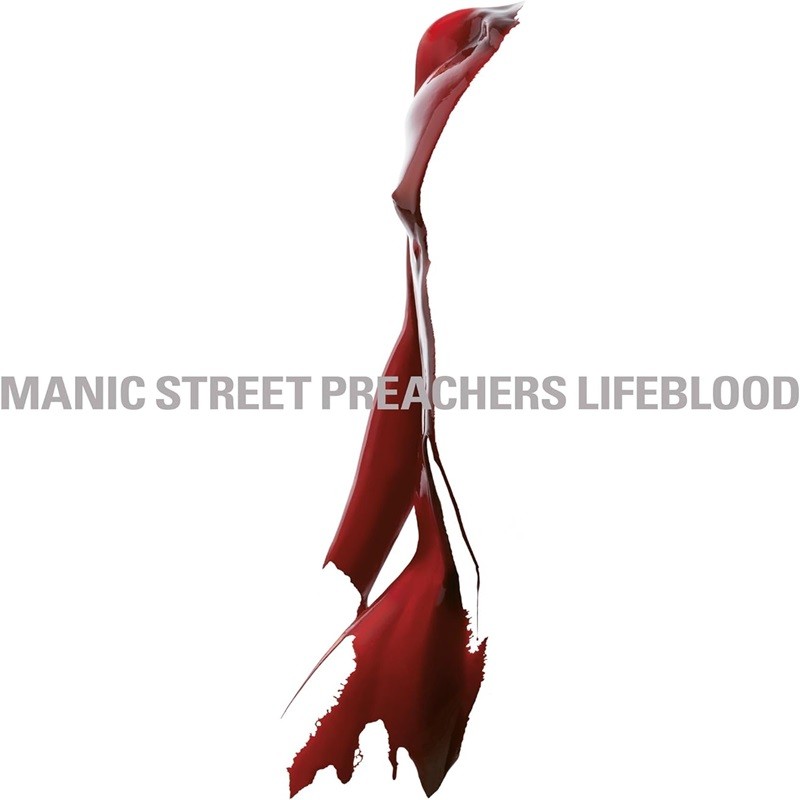

In came Manic Street Preachers’ means of temporarily saying goodbye to rock’s ageing constructs.
Over the course of their careers, most bands with true longevity will privately admit to having a favourite album.
Sometimes it’s straightforward, sometimes it’s like choosing their favourite relative, and sometimes their fans will violently want to disagree with them.
In the case of the Manic Street Preachers, Lifeblood is collectively and singularly not their favourite album.
This seems like a weird way to introduce a piece about its 20th anniversary reissue, especially given the fact that – much to Nicky Wire’s public dismay – it only managed number 13 in the charts on release and still remains Manic Street Preachers’ least commercially successful to-date.
Some of the groundwork for this relative failure had been laid with its predecessor, 2001’s highly politicised Know Your Enemy.
A deliberate attempt at audience provocation after This Is My Truth, Tell Me Yours had made them unlikely household names, Manic Street Preachers had decided they’d become the kind of safe, relatable figures they’d hated in their youth, to which they reacted with a piss and vinegar style change of course.
Anyone who’s tried though knows that staying angry for long is spiritually exhausting. Lifeblood in turn was a collection shaped by resignation, as opposed to an attempt to reclaim a status at the forefront of a British rock scene they openly despised.
The word used to describe it most frequently at the time in terms of mood was elegiac, but in reality was a proxy for the wider use of piano and synthesizers, and a return to what by writer James Dean Bradfield’s standards ran in places much closer to pop.
In too came other means of temporarily saying goodbye to rock’s ageing constructs; opener 1985 was a proper side 1, track 1 for the ages, a song about lost faith that felt beamed in from somewhere amongst the cloud tops, despite lyrically covering Morrissey and Marr, Orwell and lamenting the collapse of The Miners’ Strike.

As if to re-re-challenge people’s perceptions, in to assist with production duties came Tony Visconti, the long-time Bowie collaborator seemingly tasked with handling the gloomiest material.
In this batch was Emily, a fragile sounding paean to suffragette Emily Pankhurst, then the largely acoustic Solitude Sometimes Is – an expression of desire for living as an emotional hermit – and finally Cardiff Afterlife, a string laden track about closure after the disappearance of Manic Street Preachers guitarist Richey Edwards.
On this record of moderate extremes, in typically perverse fashion Manic Street Preachers almost topped the single charts with The Love Of Richard Nixon, which sacrilegiously featured no guitars and arrived just in time to berate an incoming American president, not that it seemed to bother him too much.
20 years on, the expanded edition boasts a whole album worth of B-sides including the excellent Everyone Knows/Nobody Cares and a pair or 1985 remixes, one by Steven Wilson and, more interestingly, Gwenno’s versioning by the means of pulsing electronica.
Also part of a generous package is another batch of demos, session and live work, although it has to be said even the most rabid acolytes might not really need the fourth – and fifth – versions of guess which song.
At the time, Wire blamed the society’s malaise on, among other things, ‘bungee jumping culture’, the idea that personal fulfilment meant a reaching new horizon every payday.
Lifeblood isn’t his favourite Manic Street Preachers album, and it probably won’t be yours, but that doesn’t mean a revisitation is a waste of time, if it’s only just to marvel at how one band’s failure still sounds better than many others’ peak.








